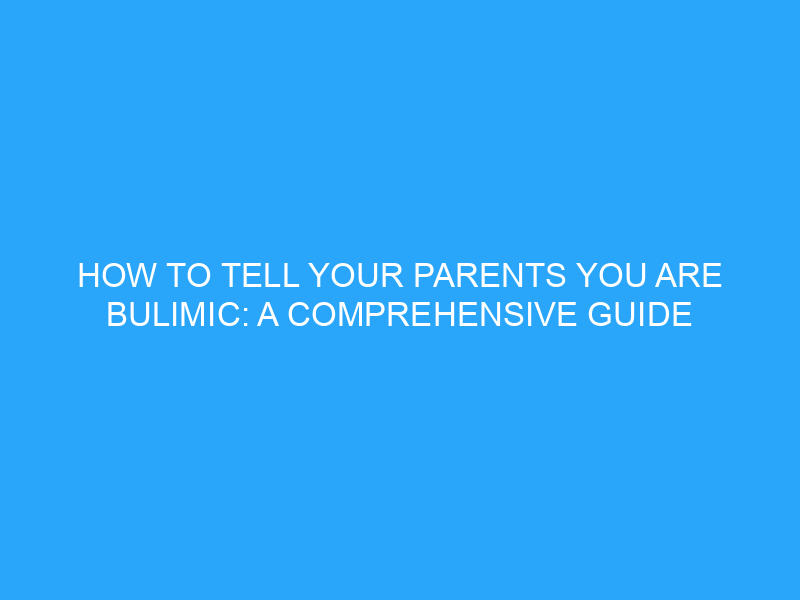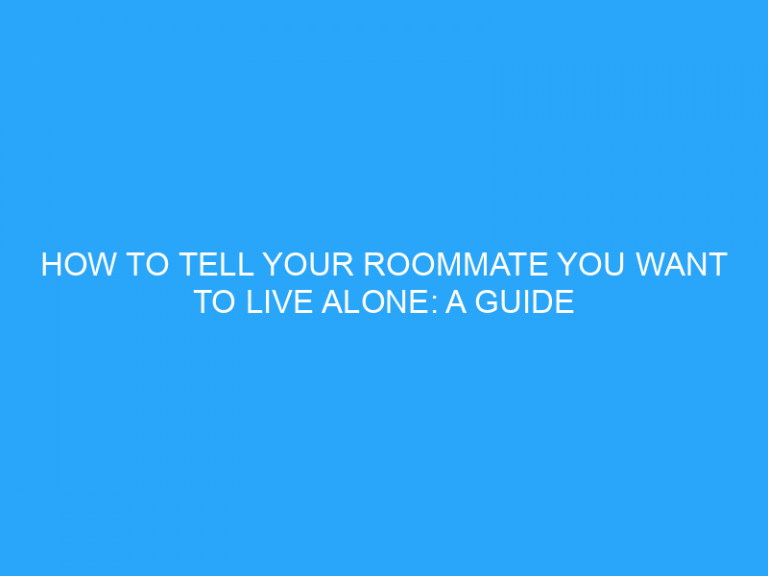It’s never easy to tell your parents that you have an eating disorder, such as bulimia. But it’s important to tell them, so that you can get the help that you need. In this article, we’ll discuss how to tell your parents you are bulimic and provide tips for making this conversation easier.
What Is Bulimia?
Bulimia nervosa, commonly known as bulimia, is an eating disorder characterized by binge eating and purging. People with bulimia typically eat large amounts of food in a short period of time and then attempt to “purge” it from their bodies by vomiting, using laxatives, or exercising excessively. Bulimia is a serious mental health condition that can have long-term physical and psychological effects.
How to Tell Your Parents You Are Bulimic
The first step in telling your parents you are bulimic is to prepare yourself. You may feel embarrassed or scared, but it’s important to remember that your parents will want to help you. It’s also important to recognize that your parents may be in shock and need time to process the news.
Once you’ve prepared yourself, it’s time to choose the right time and place. Try to pick a time when your parents are not likely to be stressed or preoccupied. It’s also important to choose a private, comfortable place where you won’t be interrupted.
When you’re ready to start the conversation, take a deep breath and tell your parents that you have something important to tell them. Then explain that you have been diagnosed with bulimia and provide them with as much information as you can.
Be sure to give your parents time to process the news and answer any questions they may have. It’s also important to let them know that you are seeking help and that you need their support.
Related Subtopics
Signs and Symptoms of Bulimia
The signs and symptoms of bulimia can vary from person to person, but some of the most common signs include extreme weight fluctuations, preoccupation with food and body image, excessive exercise, and frequent trips to the bathroom after meals. Other signs may include dental problems, stomach pain, and dehydration.
Causes of Bulimia
The exact cause of bulimia is unknown, but experts believe it’s related to a combination of genetic, biological, psychological, and environmental factors. People with bulimia may have an increased risk of developing an eating disorder if they have a family history of the disorder, suffer from depression or anxiety, or experience stressful life events.
Treatment for Bulimia
The treatment for bulimia typically involves a combination of psychotherapy, medication, and nutrition counseling. Psychotherapy can help people with bulimia identify, understand, and change behaviors and thought patterns associated with their disorder. Medication can reduce symptoms of depression or anxiety, which may contribute to bulimia. Nutrition counseling can help people with bulimia develop healthier eating habits and understand the importance of proper nutrition.
Frequently Asked Questions About How to Tell Your Parents You Are Bulimic
Is it normal to feel scared to tell your parents you are bulimic?
Yes, it’s normal to feel scared to tell your parents you are bulimic. It’s a difficult conversation, and you may be worried about how your parents will react. However, it’s important to remember that your parents want to help you and will be there to support you.
How can I find the right time and place to tell my parents I’m bulimic?
Try to pick a time when your parents are not likely to be stressed or preoccupied. It’s also important to choose a private, comfortable place where you won’t be interrupted.
What kind of treatment is available for bulimia?
The treatment for bulimia typically involves a combination of psychotherapy, medication, and nutrition counseling. Psychotherapy can help people with bulimia identify, understand, and change behaviors and thought patterns associated with their disorder. Medication can reduce symptoms of depression or anxiety, which may contribute to bulimia. Nutrition counseling can help people with bulimia develop healthier eating habits and understand the importance of proper nutrition.
Final Thoughts
Telling your parents you are bulimic can be difficult, but it’s important to get the help that you need. Be sure to prepare yourself, choose the right time and place, and explain your diagnosis in as much detail as possible. Remember that your parents want to help you and will be there to support you.
If you or someone you know is struggling with an eating disorder, it’s important to seek professional help. Eating disorders can have serious physical and psychological consequences, so it’s important to get the right treatment as soon as possible.






